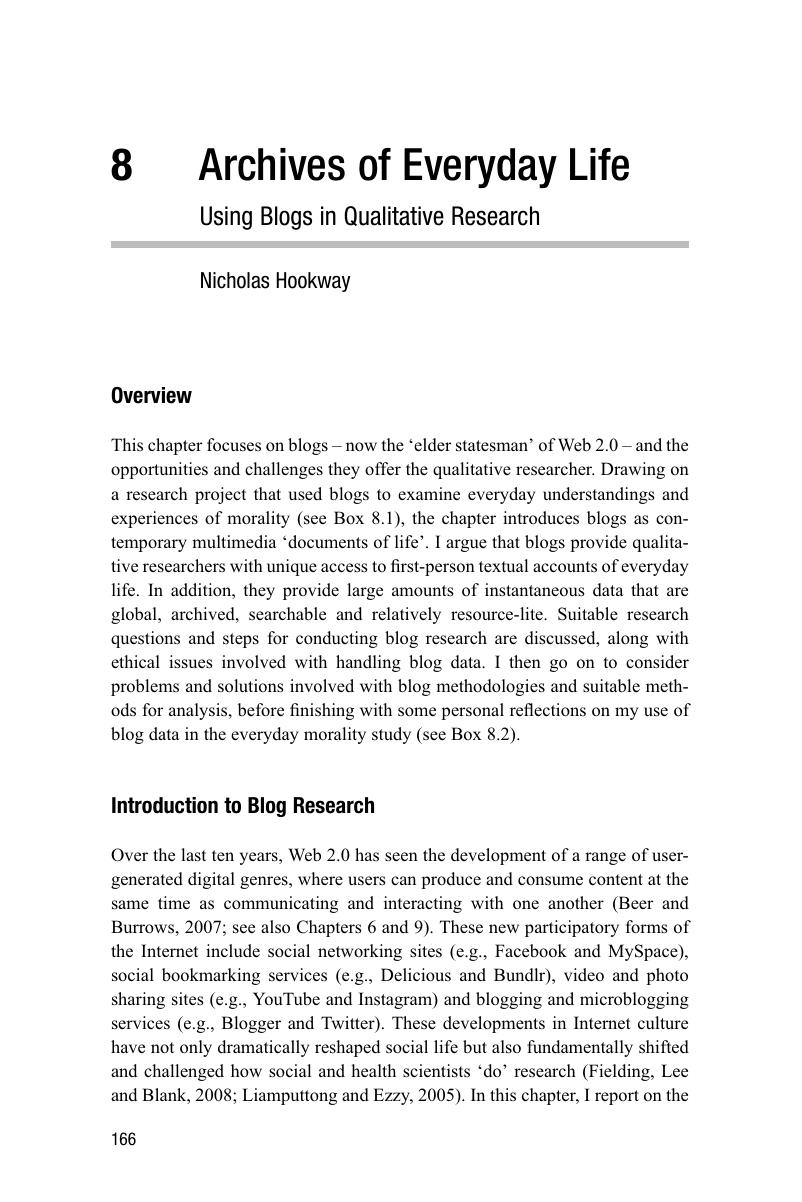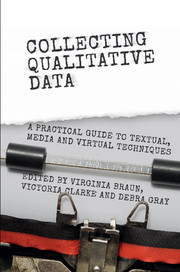Book contents
- Collecting Qualitative Data
- Collecting Qualitative Data
- Copyright page
- Contents
- Figures, Tables and Boxes
- Acknowledgements
- Contributors
- Foreword
- 1 Collecting Textual, Media and Virtual Data in Qualitative Research
- Part I Textual Data Collection
- Part II Media Data Collection
- 6 Making Media Data
- 7 ‘God’s Great Leveller’
- 8 Archives of Everyday Life
- 9 Online Discussion Forums
- Part III Virtual Data Collection
- Afterword
- Glossary
- Index
- References
8 - Archives of Everyday Life
Using Blogs in Qualitative Research
from Part II - Media Data Collection
Published online by Cambridge University Press: 06 October 2017
- Collecting Qualitative Data
- Collecting Qualitative Data
- Copyright page
- Contents
- Figures, Tables and Boxes
- Acknowledgements
- Contributors
- Foreword
- 1 Collecting Textual, Media and Virtual Data in Qualitative Research
- Part I Textual Data Collection
- Part II Media Data Collection
- 6 Making Media Data
- 7 ‘God’s Great Leveller’
- 8 Archives of Everyday Life
- 9 Online Discussion Forums
- Part III Virtual Data Collection
- Afterword
- Glossary
- Index
- References
Summary

- Type
- Chapter
- Information
- Collecting Qualitative DataA Practical Guide to Textual, Media and Virtual Techniques, pp. 144 - 165Publisher: Cambridge University PressPrint publication year: 2017
References
Further Resources: Online
The Association of Internet Researchers (AoIR) has a useful website where researchers can subscribe to a free, open-access mailing list, download papers from the association’s annual conference, and access the AoIR Guide on Ethical Online Research: http://aoir.org
The Blog Analysis Toolkit is the University of Pittsburgh’s Qualitative Data Analysis Program – a free online system for researchers to capture, archive and share blog posts: www.ibridgenetwork.org/university-of-pittsburgh/blog-analysis-toolkit
The web resource ReStore provides online training resources for researchers. The section ‘resources for learners’ (www.restore.ac.uk/orm/learnerresources/) is particularly valuable, providing overviews of key journals and texts in the field of online research, a glossary, links, FAQs and bibliographies on online research methods, including blogs (see Bibliography section ‘online methodological futures’: www.restore.ac.uk/orm/learnerresources/bibliography.htm): Madge, C., O’Connor, H. and Shaw, R. (2006). Exploring online research methods in a virtual training environment: www.restore.ac.uk/orm/
Further Resources: Readings
References
- 3
- Cited by



